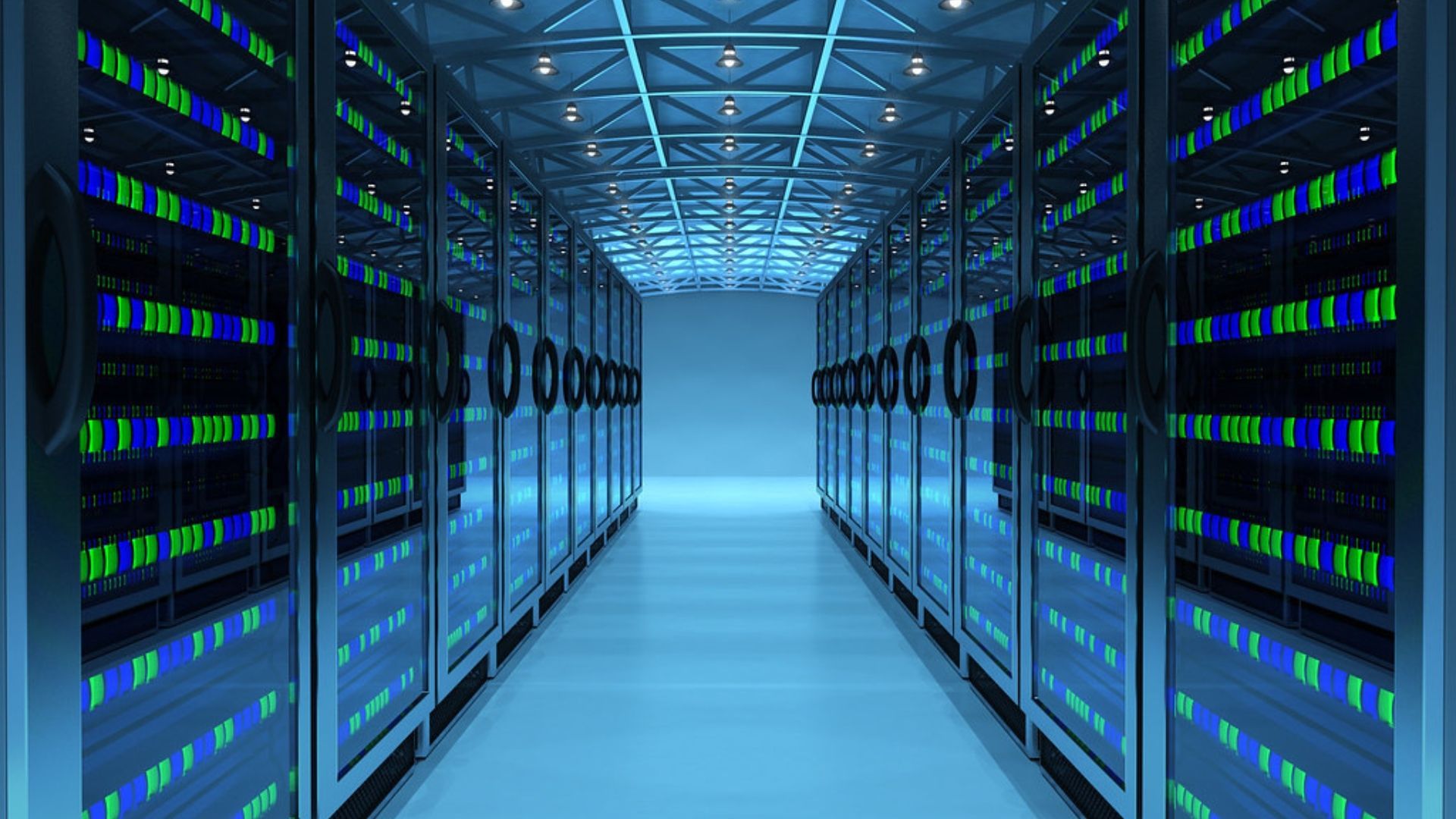The cloud and water management: challenges and solutions
What role do data centres play in the water crisis and what can be done about it? Learn about it in our article.

Once upon a time, "the cloud" was the preserve of big tech, big data and big organisations. Today, it's woven into the fabric of our lives – as indispensable to many of us as electricity or water.
If you think that's hyperbole, imagine your day without cloud technology. Sure, you could adapt. But in the short term, you'd be deprived of emails, file sharing, GPS and streaming services. All chill, no Netflix… it doesn't bear thinking about.
The cloud, however, comes at a cost. For both businesses and consumers, cloud services cost money. But there are other costs, too. One of the biggest is water.
You see, the cloud runs on data centres – and data centres are thirsty. To take just one striking statistic, Google's data centres guzzled 21.1 billion litres of water in 2022. That's about the same as 37 golf courses.
This wouldn't be a problem if water was in plentiful supply. But among the many environmental crises facing mankind, one is a global water shortage.
In this article, we take a look at how cloud technologies are contributing to the water crisis – and what can be done about it.
Why is water management a challenge?
The idea of a water crisis or water shortage may seem counterintuitive. Look at the nearest world map and you'll see that around three-quarters of the globe is covered in water. Surely there's more than enough to go around?
Well, yes and no. Less than one percent of the world's water can be used to drink or to water crops. The rest is inaccessible, whether in glaciers, lakes, rivers, swamps or underground.
This means water supplies need to be managed effectively if humanity isn't going to face shortages in the coming decades.
How is cloud computing a contributing factor?
Walk into any data centre and you'll see row upon row of servers. Just like your laptop, these servers get hot with use. For them to function, they need to be cooled.
Data centre providers have a choice. To cool down their servers, they can use air conditioning or something called "evaporative cooling".
Evaporative cooling – also known as "swamp cooling" – is where hot air is drawn into the data centre and evaporated. This cools the air temperature inside the facility.

The problem with this method is that it creates dead water. Once evaporated, the water can't be renewed.
This might not be a problem if the amount of water used by data centres wasn't so huge. In the USA, a mid-sized data centre uses as much water as 100,000 homes.
And it's not as though water demand is decreasing. In fact, it's expected to double by 2030.
Add to this the fact that a significant amount of Microsoft and Google's freshwater is withdrawn from areas of water stress and you can see why the issue needs addressing.
What can be done?
As with many things, technology can be both the problem and the solution.
If water has to be used to cool down data centres, companies need to be more efficient in their usage. They also need to work more closely with local communities to ensure that they're not hijacking resources.
There are also various out-of-the-box solutions that have been trialled or proposed.
One of these is not so much a blue-sky as a blue-sea solution. Microsoft's Project Natick is a
subsea data centre that's cooled by the sea itself
. This means it can run as normal without freshwater cooling or electricity.
This steel cylinder, about the size of a shipping container, is no silver bullet. But if more of its kind were deployed, we could see an increase in efficiency.
Microsoft has also made moves to harvest rainwater and cool data centres with nothing but outside air. This is the case in its data centres in Sweden.
Colder climates like Sweden are attractive to data centre builders for this reason. Meta, for instance, has started building facilities in places like Oregon, USA, and Lulea, a city in north Sweden.
Another issue with the cloud and water management is that the needs of the cloud provider can clash with those of local communities. This is especially the case in areas of water stress, where demand outstrips or threatens to outstrip supply.
This is a complex issue with no easy solution. However, it's worth noting that Microsoft has announced it will be making its Arizona data centres more water-efficient as a direct response to concerns from the local communities.
The cloud's troubled relationship with water is symbolic of the water crisis in general. The problem isn't the amount of water – it's management.
This is true at the level of consumption, in data centres and elsewhere – but also at the level of ageing infrastructure. Each year, huge amounts of water are lost because of leaking pipes and decaying gear.
Data centre providers have a responsibility to manage water efficiently. But it's not true to say that they are entirely responsible. Like all of us, they're working within a system that's not optimally efficient and which needs global investment.
Final thoughts
Cloud technologies are vital to our day-to-day lives. But the data centres that power them use a huge amount of water – and at a time when global water shortages are a very real possibility, solutions need to be found.
These solutions need to come from all directions – from cloud providers, water suppliers, corporations, governments and consumers. The alternative is a world where water shortages increase the chances of conflict and ramping inequality.
We don't claim to have a crystal ball but it seems clear that solutions are being worked on and deployed, albeit unevenly. As things progress, we'll make sure to keep you posted.
At Ascend Cloud Solutions, we're dyed-in-the-wool
cloud computing experts
with more than 400 successful cloud migrations under our belts.
Get in touch
today for a no-obligation consultation.











